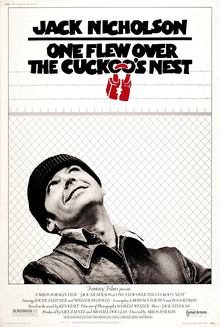 |
| Elizabeth Huddle and Christopher Lloyd in Pilgrim, Farewell |
Cast: Elizabeth Huddle, Christopher Lloyd, Laurie Prange, Leslie Paxton, Shelley Wyant, Elizabeth Franz, Robert Curtis Brown. Screenplay: Michael Roemer. Cinematography: Franz Rath. Film editing: Terry Lewis.
Life is messy, but dying is messier. That seems to be the point of Michel Roemer's emotionally raw Pilgrim, Farewell. Kate (a compelling Elizabeth Huddle) is not going to let cancer take her without making a fuss about it, which involves lashing back at the well-meaning people, her physicians and family, who would like to make it easier for her. She's especially hard on her sister, Rebecca (Leslie Paxton), and her daughter, Annie (Laurie Prange), both of whom have problems of their own, even if they aren't fatal ones. Annie and Rebecca both collapse under Kate's pain-driven assault, but manage to recover with the aid of Paul (Christopher Lloyd), the man Kate is living with. There are times when I felt that Roemer had crammed too much backstory into the lives of her characters, bringing a whiff of melodrama into what is mostly a serious film. And he makes Paul just a little too sturdy and patient in dealing with the women who are acting out the crisis of Kate's illness. (The film was made before Back to the Future (Robert Zemeckis, 1985) established Lloyd as a comic character player, specializing in eccentrics. I wish we'd seen more of this side of him as an actor.) It's also unfortunate that the story of the effect of a woman's slow death on others brings to mind a greater film, Ingmar Bergman's Cries and Whispers (1972). Pilgrim, Farewell can't hope to match up to that standard, but it's a solid and often profoundly moving work.
















